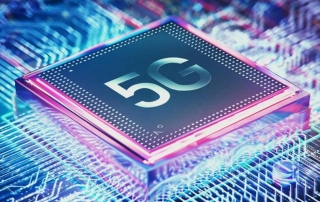The Oppo Discover X7 Extremely is a smartphone that has a 1-inch sensor for its essential digicam, plus two periscope zoom shooters. It is what I will be taking with me any more. It seems that the Panasonic TZ200 will probably be staying at dwelling much more…Soar to part


The Panasonic TZ200 (1-inch sensor, 20MP decision, 24-360mm equal focal size)
A 1-inch sensor can increase cellular pictures considerably by enhancing picture high quality, particularly in low-light circumstances: as a rule of thumb (being bodily bigger), it captures extra gentle and thus the photographs from it are clearer, and never as “noisy” (grainy).
Additionally, it permits for a shallower depth of discipline portraits – a bokeh that is pure and does not depend on AI. Lastly, improved dynamic vary and higher shade replica are additionally anticipated.
Placing 1-inch sensors in telephones is a comparatively new phenomenon – this format hasn’t made its option to the iPhone Professional line. Neither the Galaxy S Extremely flagship and the Pixel Professional pack such a sensor (in 2024).
Nevertheless, manufacturers like Oppo, Xiaomi and vivo (since 2022) have manufactured telephones that make the most of both the 1-inch Sony IMX989 sensor or its successor, the LYT-900.


The Oppo Discover X7 Extremely additionally packs a 1-inch sensor (for its essential digicam)
- LYT-900: essential digicam, 1-inch sensor, f/1.8
- LYT-600: ultra-wide, 1/1.95-inch sensor, f/2.0
- IMX890: 2.8x (65mm) periscope optical zoom, 1/1.56-inch sensor, f/2.6
- IMX858: 6x (135mm) periscope optical zoom, 1/2.51-inch sensor, f/4.3
For context, the newest maxed-out flagship from Xiaomi – the Xiaomi 14 Extremely – affords an analogous quadruple digicam setup on its again. It packs the identical 1-inch LYT-900 sensor for its essential digicam (there is a variable f/1.63-f/4 aperture out there as nicely).
The distinction (on {hardware} stage) is that the remainder of the Xiaomi 14 Extremely‘s cameras (an ultra-wide, and two devoted zoom snappers) all pack the smaller (1/2.51-inch) Sony IMX858 sensor. Alternatively, the Xiaomi’s lenses are “brighter” (with bigger f/ numbers), which brings me to my subsequent level.
There is a price to the TZ200’s bundle: 15x optical zoom, 1-inch sensor, pocketable form-factor. The lens may be very dim at f/3.3-f/6.4. Which means that it is a ache to shoot in the dead of night – with these aperture numbers, the ISO goes up and the picture high quality degrades.
Additionally, as a consequence of its design, the lens is (actually) not the sharpest device within the shed (on the lengthy finish of the zoom vary). Positive, there are 1-inch sensor cameras with nice zoom and brighter, sharper lenses, however they don’t seem to be pocketable. Which is a dealbreaker for me.
What are the drawbacks and limitations of utilizing the Oppo Discover X7 Extremely as an off-the-cuff journey pictures machine? Can I substitute my beloved and cherished Panasonic TZ200 with a flagship that packs a 1-inch sensor, and has not one, however two devoted zoom shooters?
After meditating on these profound questions, I received myself a airplane ticket to South Spain and introduced alongside each of this text’s main characters.
How this comparability is carried out
As this is not the everyday “telephone vs. telephone” sort of comparability assessment, I am not going to speak about chipsets, RAM, efficiency and the general really feel of the Oppo Discover X7 Extremely.
Attributable to the truth that its lens protracts and retracts on a regular basis, mud will get on the sensor. For those who see some nasty black spots within the sky, do not be alarmed. I have not “cleaned” them in Lightroom on function for this comparability – “it’s what it’s” and if one of many cameras has built-in flaws, I am not hiding them.
The JPEGs from the Oppo, aside from some minor cropping or micro-rotating, are untouched – SOOC (Straight Out Of Digicam).
For the RAW vs. RAW comparability, I attempted to convey the most effective out of each units with out obsessive edits in Lightroom. I used Adobe’s presets, barely boosted saturation, distinction, readability and I toned down the highlights and revealed the shadows the place wanted.
*I am going to clarify that within the first comparative instance in a second.
Day 1, Malaga: A sunny metropolis begins the pleasant rivalry
Malaga’s Costa del Sol (actually “Coast of Solar”) area did not get its identify out of the blue – locals get pleasure from over 320 days of sunshine per yr. I can affirm that. What this implies for pictures is that at midday, when the solar is at its highest within the sky, you will have a tough time determining keep away from the cruel shadows and distinction. Until you’ve got a specific idea in thoughts, keep away from capturing an excessive amount of – particularly portraits – at midday.
The primary “Vs.” photograph is from the “JPEG vs. RAW” class – that means that I am evaluating the Oppo’s JPEG file to the Panasonic’s RAW file. Until acknowledged in any other case, you may assume the subsequent examples are additionally “JPEG vs. RAW”.
The photograph is taken proper exterior the Reserving residence. The balconies on the left had been adorned with flamenco attire and a church is in proximity. Nothing to put in writing dwelling about, however the bricks’ texture on the church is a tad clearer on the Oppo. Additionally, the shadows are “cleaner” on the smartphone, that means that they don’t seem to be as noisy (grainy):
For the sake of simplicity (and my psychological well being), from now I am going to simply state the focal size’s quantity with out the entire “equal focal size” factor.
Now, an essential clarification. For those who’re within the Oppo, you could have stumbled throughout the data that it has a 3x (72mm) optical zoom digicam, which simply is not so. Technically, it is a 2.8x (65mm) optical zoom digicam:
- When capturing within the “common” photograph mode, you are at 3x (72mm);
- When capturing within the “Grasp mode” (afterward that), you will be at 2.8x optical zoom (65mm);
So, if I say the “3x zoom digicam”, you shall not report me to Dongguan (Oppo’s headquarters), however you will know I am referring to the two.8x optical zoom digicam. Okay? Nice.
Subsequent, we’re at a 1925 constructing that belongs to the pattern of Malaga’s native eclectic regionalism, born as a substitute for modernism. Whereas these are extraordinarily related at 3x (Sony IMX890, 1/1.56-inch sensor), I contemplate the Panasonic’s picture to be considerably extra “relaxed” and pure. The Oppo, then again, is overdoing it (too HDR-y look, punchy colours that distract and textures that evoke the “phone-ography” look):
Nevertheless, the Oppo blows the Panasonic out of the water as soon as I zoomed out to 23mm and the telephone switched to the primary digicam (Sony LYT-900, 1-inch sensor) for a similar constructing:
Right here, David slayed Goliath by way of sharpness and readability. In return, regardless of the TZ200 lacks intimately, it compensates by way of shade. The hue on the Oppo is simply off on this instance (it is too “chilly” and inexperienced), and this drawback is about to deepen within the upcoming check photographs:
A particularly essential PSA: apparently, the Oppo makes use of the 3x digicam for 6x photographs in some circumstances. Yup, you could set the focal size at 135mm, however the telephone can select to ship a crop out of the 3x digicam resembling the 6x digicam.
If unsure, here is a touch on inform which digicam produced which shot: you simply have to take a look at the f/ quantity (the lens’ aperture). This is inform them aside:
- If a photograph is taken at f/1.8, it is from the essential digicam;
- If a photograph is taken at f/2, it is from the ultra-wide digicam;
- If a photograph is taken at f/2.6, it is from the 2.8x (3x) periscope telephoto;
- If a photograph is taken at f/4.3, it is from the 6x periscope telephoto;
This is a good clearer instance of the Oppo’s tendency to shift colours and throw the white steadiness off. Fortunately, this may be mounted in a couple of clicks in post-processing. These photographs are shot at 300mm, which is exceptional – the Oppo’s digital zoom is doing higher than the TZ200’s optical zoom aside from the hue deviation:
Time for a portrait. Yup, the sky’s already excessive and the circumstances aren’t excellent, but when there is a will, there is a manner. And, oh, boy, does the Oppo ship! That is utilizing the 3x digicam, it is a SOOC (Straight Out Of Digicam) JPEG file with no edits in any way. It is shot in Portrait mode and the customized bokeh is not even maxed out:


Portrait mode, 3x
Subsequent, let’s examine what Pennywise from Stephen King’s It is as much as. Right here, the primary digicam on the Oppo is doing higher, however that is simply my opinion:
Okay, time for a RAW vs. RAW comparability. I am testing the primary sensor on the Oppo once more in a nasty scenario – tough textures on a shadowy wall with harsh sunspots throughout it. The colours on the Oppo are a bit washed off, however (once more) the picture is sharper and clearer:
As soon as once more, we’re wanting on the wall. I am utilizing the 6x telephoto in RAW (and I set the TZ200 to the corresponding 135mm focal size), edited to style. Whereas it is an total draw, the telephone produces photos with much less noise:
You’ll be able to’t see what I imply by “much less noise”, so here is a 150% magnification. Discover the darkish areas:
For those who assume that the secondary devoted telephoto – the 6x optical zoom digicam – is ineffective, assume once more. This is what 135mm can get you, in comparison with the 72mm focal size:
…and here is why you should not merely crop out of the 3x. Behold what the 6x will get you when cropped:
One other RAW comparability. Right here, I am testing Oppo’s 3x and 6x cameras. The tendency is official – the Oppo does throw the white steadiness off, particularly with the 6x unit. Discover the cathedral’s shade. The TZ200, whereas producing relaxed photos which are straightforward on the attention, continues to get wrecked by way of readability and sharpness:
Time to get better some highlights. Whereas on the Picasso museum (housed within the sixteenth century Buenavista Palace), there was a person having fun with the solar within the courtyard. I took a snapshot, however the Oppo did not meter the publicity accurately and the highlights on this JPEG had been blown. Fortunately, I used to be capable of get better them in Lightroom to a level:
At Malaga’s seaport, I am testing the primary digicam and the 6x telephoto (RAW information once more). Even in a transparent, sunny day, the TZ200 photos are noisy (the ISO is as little as it might probably get on the digicam – ISO 125):
For the reason that cathedral is way away from the port and 135mm simply does not appear sufficient to convey it up within the above instance, I resort to the Oppo’s 221mm digital zoom. In excellent circumstances like these, it is doing higher than the Panasonic’s optical zoom, which is gorgeous:
This is a more in-depth have a look at 150% magnification:
Malaga has many rooftop bars, which is a blessing from above (pun supposed) for all zoom aficionados. The church of Santiago Apóstol that mixes Christian, Islamic and Baroque parts might be seen from above, and it drew the eye of my 6x telephoto. Nevertheless, right here the TZ200 scores some extent with its pure, balanced picture. It is not simply that the colours are off on the Oppo, discover the shadows and the best way the sunshine progressively enfolds on the cupola:
Let’s place some bets. Which of the next footage is taken with the Oppo, and which one – with the Panasonic? I am labeling the photographs both “A” or “B” and it is as much as you to inform if “A” (or “B”) stands for “Oppo” or the devoted digicam.
Write down your guess, and the reply will probably be disclosed in a couple of days:
Day 2, Ronda: The Oppo will get forward
As early as the beginning of the second day, the Oppo had turn out to be my weapon of alternative, and the Panasonic was taken out completely for the comparability photographs. All the things else was shot on the smartphone. The primary RAW comparability for the day: a component of the parish church of Socorro (Parroquia de Nuestra Señora del Socorro, a reputation it has retained regardless of the demolition of the outdated church in 1936 by socialists within the Spanish Civil Battle). The 3x digicam (truly, it is a 2.8x optical zoom, bear in mind?) is doing simply nice, however I anticipate nothing much less:
Subsequent, a scenic sq. with a bust of Francisco Giner de los Ríos (an influential thinker, educator and mental on the finish of the nineteenth and the start of the twentieth century) is ideal to RAW-compare the 1x, 3x and 6x cameras on the Oppo (and to take a look at how the 10x is doing). The Oppo didn’t meter accurately right here, so I needed to spend twice as a lot time retouching these photographs, in comparison with the properly lit photographs from the TZ200:
One other great place for the same comparability is the Arco de Felipe V (or Felipe V arch), a part of the town partitions of Ronda. For those who can consider it, it is named after the king of Spain Philip V (1683 – 1746).
Anyway, listed below are the marginally edited-to-taste photographs from RAW information at 1x, 2x (that is only a crop from the 1x digicam, but it surely’s nice), 6x (after which some: I am going all the best way as much as 10x, then 15x (360mm), and only for the kicks – 617mm on the Oppo, equal to 27x digital zoom).
The Oppo had points with the publicity metering as soon as once more, generally darkening the picture by nearly two stops, however the finish result’s nice:
Again to Malaga for a fast evening shot. I am extraordinarily reluctant to take the TZ200 out, and here is the rationale (RAW information, essential digicam):
Day 3, Granada: The rivalry is not pleasant
By the third day, I didn’t really feel like taking out the purpose and shoot in any respect, however snapped a couple of photographs right here and there for this text’s sake.
We’re in Granada, and the sky is cloudy. Whereas for vacationers that is “not nice, not horrible”, as they mentioned within the Chernobyl HBO sequence, an overcast surroundings is ideal for the comparability assessment – you may’t have sunny days on a regular basis, are you able to? Until you reside in Costa del Sol…
At Alhambra, the world-famous palace and fortress constructed between 1238 and 1358, there is a properly trimmed hedge with the palace’s gardens peeking by. The Oppo is as soon as once more struggling to resolve what the right white steadiness is (RAW information, essential digicam):
I knew I used to be going to get a sharper shot from the Oppo’s 3x digicam on this RAW comparability:
Enjoyable truth: I hoped that the 3x Oppo digicam can be spectacular, however I used to be dismissive of the 6x telephoto initially. Boy, was I flawed! Anyway, here is what the RAW 6x file seems like:
…and here is a 100% crop of the identical photos:
One other view from Alhambra (3x telephoto) and the important thing takeaway is that you will have to study to dwell with the Oppo’s (barely) thrown off shade palette, because the Panasonic’s shot is nearer to the precise scene:
After spending an exquisite time in Granada (and having some critically scrumptious oxtail croquettes), it is time to go to the seacoast as soon as once more – here is Nerja and Nerja’s Balcony of Europe that provides a pleasant view over the Mediterranean Sea (RAW, essential digicam):
Day 4: Zero footage from the TZ200
On the fourth day, the Panasonic wasn’t taken out in any respect.
I did not even put it in my pocket, as typical – I took out the SD card and put it in my backpack. You already know, in case your backpack will get misplaced or stolen, you do not lose your photographs because the SD card is in your pockets, for instance. For those who lose your pockets whereas overseas, I am out of advices to offer.
So, since no comparisons had been made that day, it is higher to say the Oppo’s Grasp Mode, as promised earlier.
The Grasp Mode is calibrated to match the traits of the Hasselblad X2D 100C, an $8200 medium-format beast of a digicam. Placing apart that pipe dream declare, the Grasp Mode is extraordinarily helpful – you’ve got all of the superior digicam controls like handbook ISO, shutter velocity, EV, focus, and white steadiness at your fingertips. Grasp Mode additionally unlocks saturation, distinction, sharpness, and vignette management when capturing JPEGs.
I am not too loopy about macro pictures, however here is (within the instance above) the 3x telephoto in Grasp Mode at its minimal focusing distance – the mini-cracks on the airplane acrylic window look actually charming. When at its most focusing distance, the imperfections type of disappear.
What is the ethical of the story? You can shoot by soiled, greasy, cracked or frozen home windows.
Notable Oppo Discover X7 Extremely photograph samples
Beneath are some notable examples of the Oppo Discover X7 Extremely – these are my private favorites!
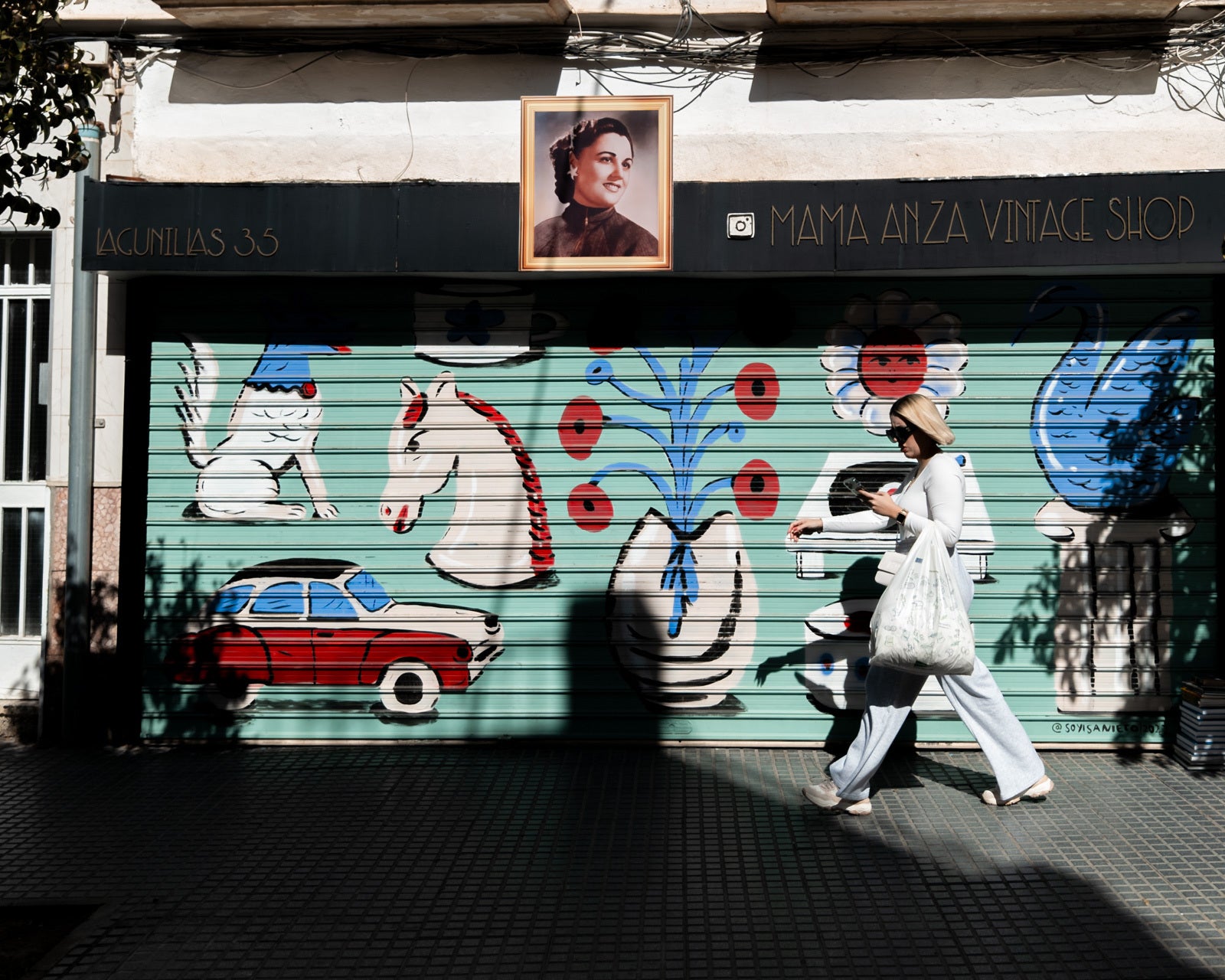

Oppo’s 1x
Bear in mind after we talked about how the cruel midday solar is probably the most horrible pure gentle out there on the market? Yup, however harsh gentle equates to deep shadows… and deep shadows are enjoyable to play with.
I really like excessive distinction road pictures in shade just like the examples each above and beneath – they’re shot on the Oppo’s essential digicam, using the 1-inch Sony LYT-900 sensor.
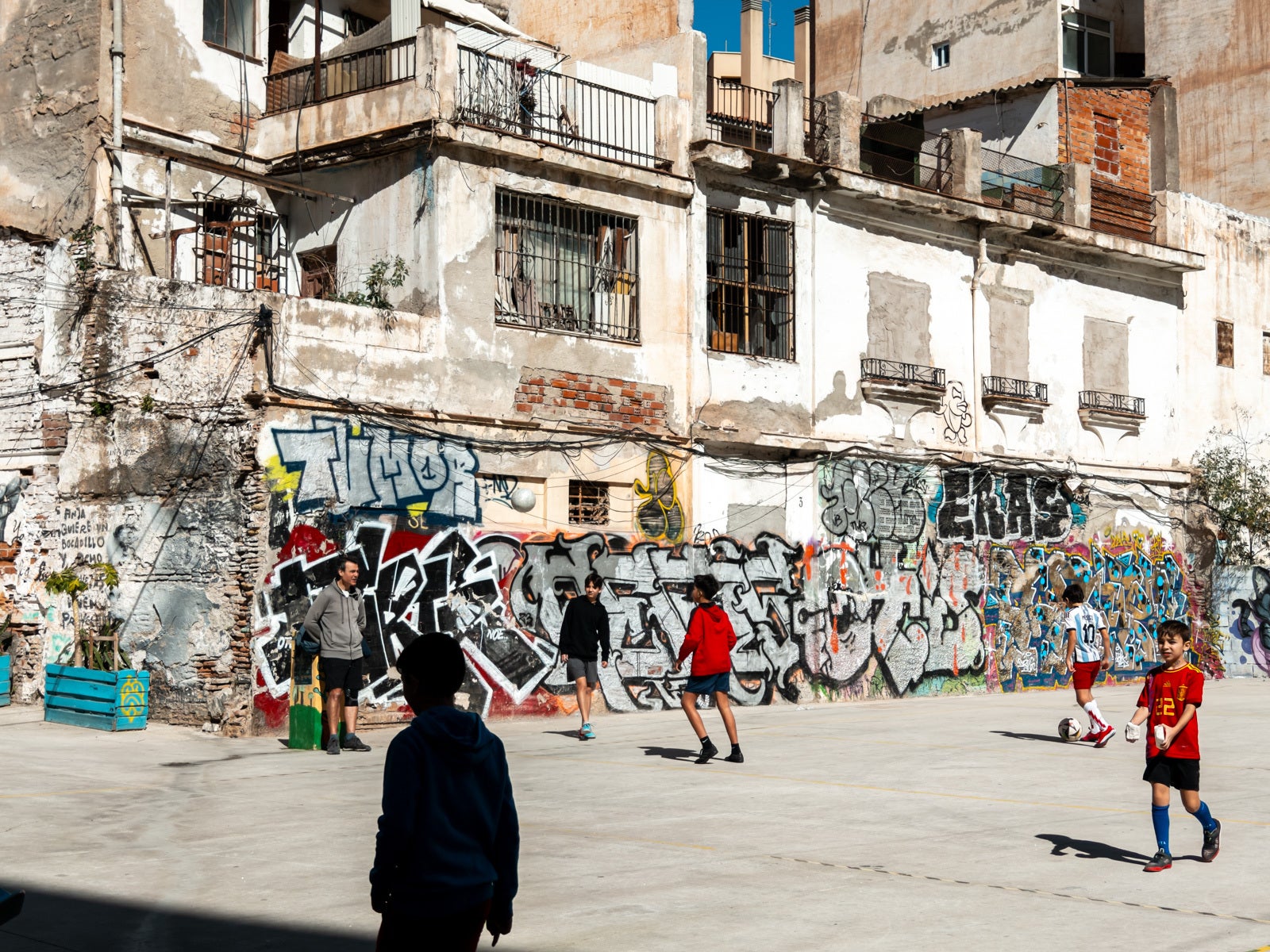

Oppo’s 1x
The telephone’s 6x optical zoom telephoto isn’t just helpful for reaching distant objects. The telephoto compression (the place distant objects seem nearer and extra compressed within the body) enhances the sense of depth and scale:
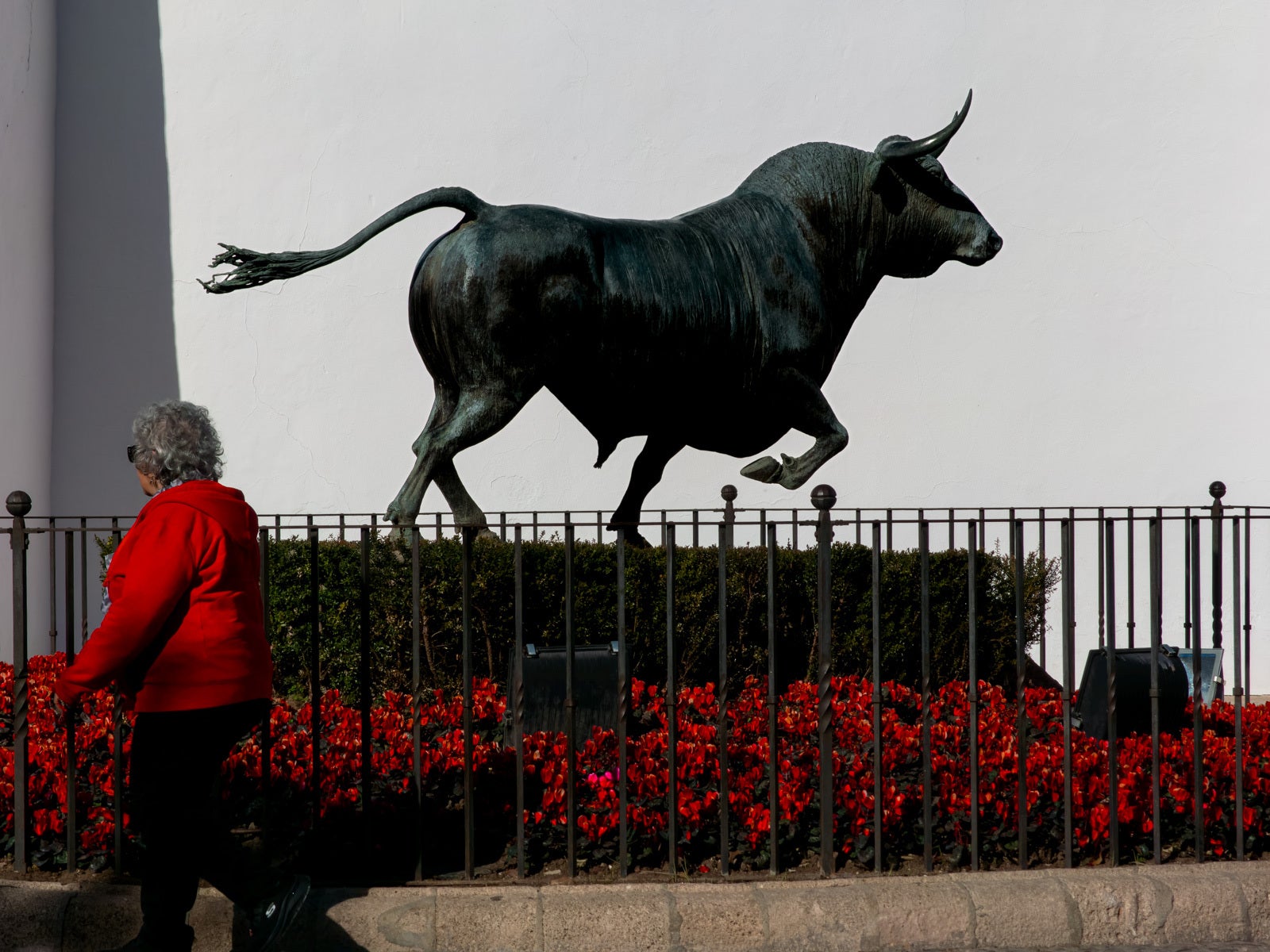

Oppo’s 6x
The 3x telephoto and its enormous (for a telephoto) 1/1.56-inch sensor is extraordinarily helpful at evening. It is a JPEG file, SOOC (Straight Out Of Digicam), that means that it is not been retouched:
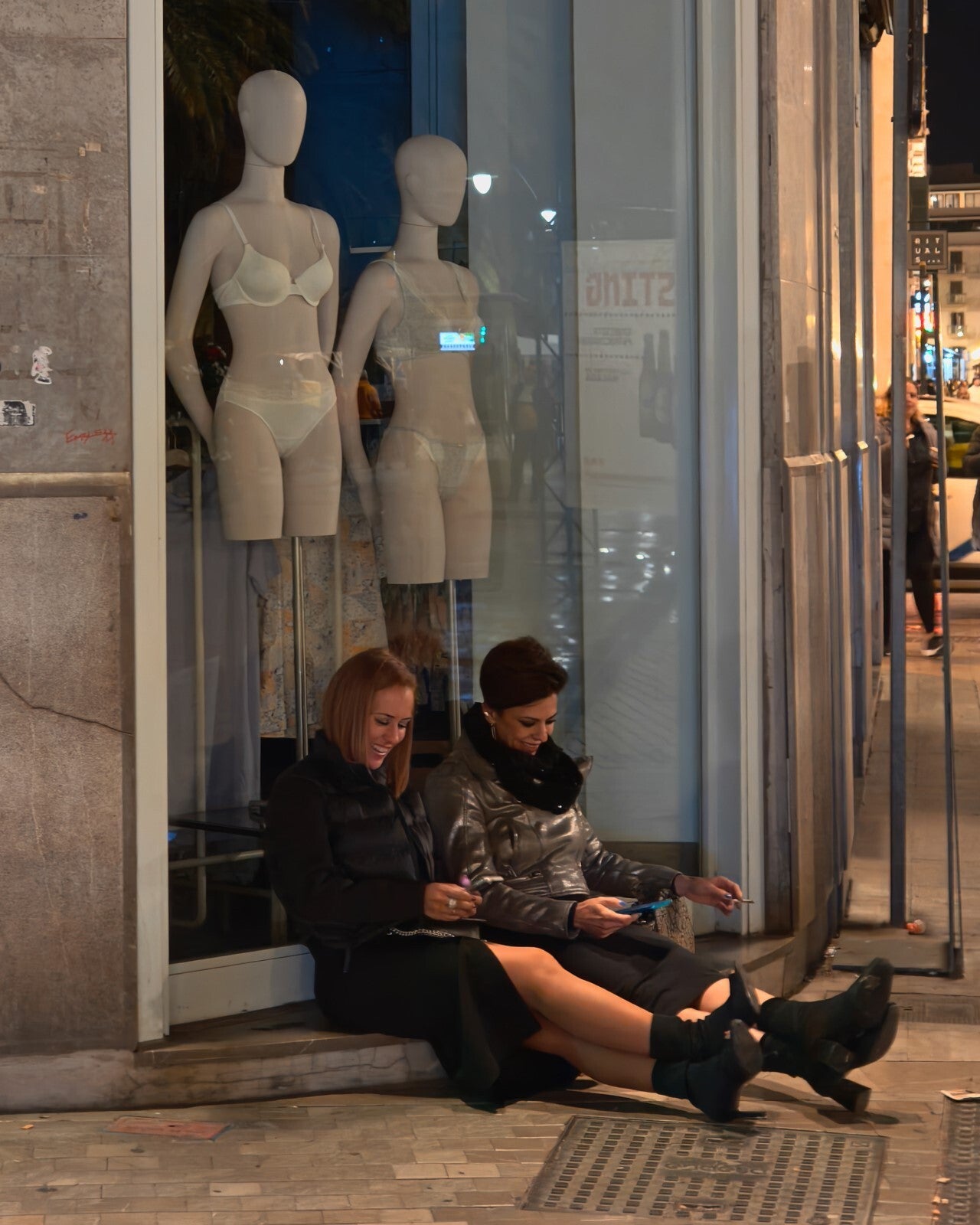

Oppo’s 3x
Let’s take a look at some extra photographs from the Oppo Discover X7 Extremely!
The Oppo delivers: JPEG (SOOC (Straight Out Of Digicam) gallery
The Oppo shines: RAW (edited to style) gallery
Closing meals for thought – sure, it is succesful sufficient!
For me, the Oppo Discover X7 Extremely is a succesful sufficient standalone digicam for on a regular basis use, informal journeys and every little thing in between.
If I could make calls and ship messages (and do no matter one does on a smartphone) on it, that is even higher!
Oppo Discover X7 Extremely Professionals:
- Essential sensor: phenomenal image high quality
- Zoom: extraordinarily helpful twin telephoto periscope cameras
- Dependablefocus system: only a few misfocus conditions
- Nice battery life: additionally, it is charging actually quick
- Attractive display: that factor takes you on cloud 9
- Night time timephotographs: I do not care if there’s any gentle out there
- Clear photos: the best way the Oppo handles excessive (and low) ISO is exceptional
Oppo Discover X7 Extremely Cons:
- Availability: come on, Oppo, launch that factor world-wide!
- White steadiness: yup, it is off more often than not and issues can get too blue/inexperienced
- Overdoing it: the telephone cannot utterly eliminate that “smartphone-photography” look and generally applies an excessive amount of readability and distinction
That is under no circumstances to say that the Panasonic TZ200 is a nasty digicam. You already know its shortcomings, so here is what I like about it:
- It is compact (for a devoted digicam)
- It extends to 360mm (although I not often use that, it is nonetheless good that )
- I would not hesitate to take it to a sports activities sport (10fps)
- If the celebs align (and the sunshine is excellent), it might probably produce gorgeous photos
Will I throw my Panasonic TZ200 to the lions now that I am utilizing the Oppo Discover X7 Extremely? No, not an opportunity.
Will I take the TZ200 out with me as typically as I did till now? No, not an opportunity.It will likely be used manner much less.
Anyway, here is the Oppo’s 6x optical zoom (135mm) telephoto going to 30x digital zoom (673mm). I am wanting ahead to the day once I’ll have the ability to see what’s inside these containers on the ship from my airplane at 38,000 ft (11,5 km) altitude.

